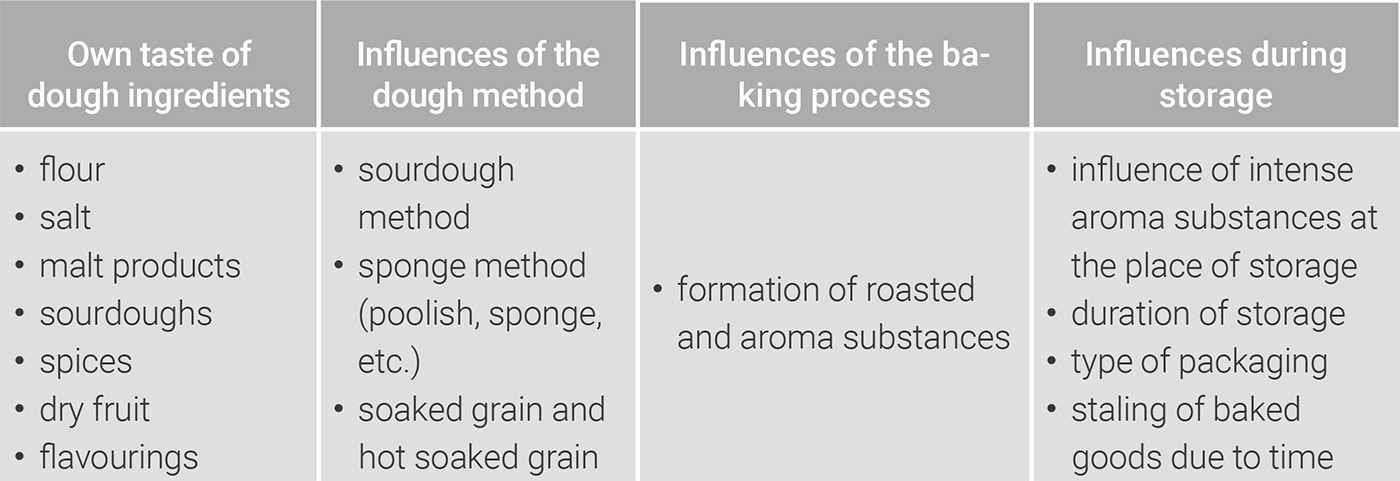The impression which is caused when trying baked goods by smelling and tasting is called the baked goods aroma. In this way, the numerous volatile aroma substances are perceived through the nose and the five basic tastes via the taste receptors in the mouth on the tongue. As a result of chewing, volatile aroma substances are also released which, in turn, are perceived by the nose.
The baked goods aroma is fundamentally based on four factors during the production and storage of baked goods which are shown in following table.
To objectively determine whether a deviating aroma or an off-flavour is involved, the opinion of several experts should be asked in case of doubt. This can also be carried out via a sensory test involving several people. Here too, the local peculiarities in the aroma of types of baked goods have to be considered. Sensory tests are described in the chapter Quality check of baked goods.
Too sour smell/taste
A too sour smell/taste can be caused by a too high percentage of sourdough or an
incorrectly processed or too mature sourdough. Too high amounts of sodium diacetate or calcium acetate (> 0.3 %) equally lead to a too sour smell/taste. In some baked goods, a distinctly sour baked goods aroma is also desired, however (e.g. San Francisco sourdough bread).
Too insipid smell/taste
The cause of an insipid baked goods aroma can be diverse. In general, in the case of a direct dough method with warm doughs, high quantities of yeast and short bulk fermentation and proof times, not many aroma substances can form and therefore only a little baked goods aroma is developed. The dough method and the choice of the ingredients should then be adjusted accordingly. Salt influences the taste impression quite significantly. As a result of specifications from the food trade and the legal requirements of some countries, maximum amounts have sometimes to be observed regarding the addition of salt, however. By the use of intensely aromatic malt products or sourdoughs, aromatic baked goods can nevertheless be produced, despite low amounts of salt.
Too bitter taste
Mainly wholemeal flours contain a lot of tannins which can be noticed in the taste of the bread. Also oilseeds, which have been stored for too long, can cause a bitter taste. Over and above, too hot or too long baking leads to the formation of bitter roasted substances in the crust.
Dull smell/taste
The reason for a dull smell/taste is normally dull smelling and dull tasting milled products. The cause here can be a contamination with mould fungus from too damply and too warmly stored milled goods or milled products.
Foreign odour/Foreign taste
If flour or bread has contact to strongly odorous substances or is stored in the immediate vicinity, then a foreign odour/foreign taste can develop. This can either take place during transport, if strongly odorous substances have previously been carried in the delivery vehicle, or also during storage, if strongly odorous substances are kept in the same room. Also incorrectly processed precursors (e.g. soaked grain or hot soaked grain) can generate a foreign taste or a foreign odour.

